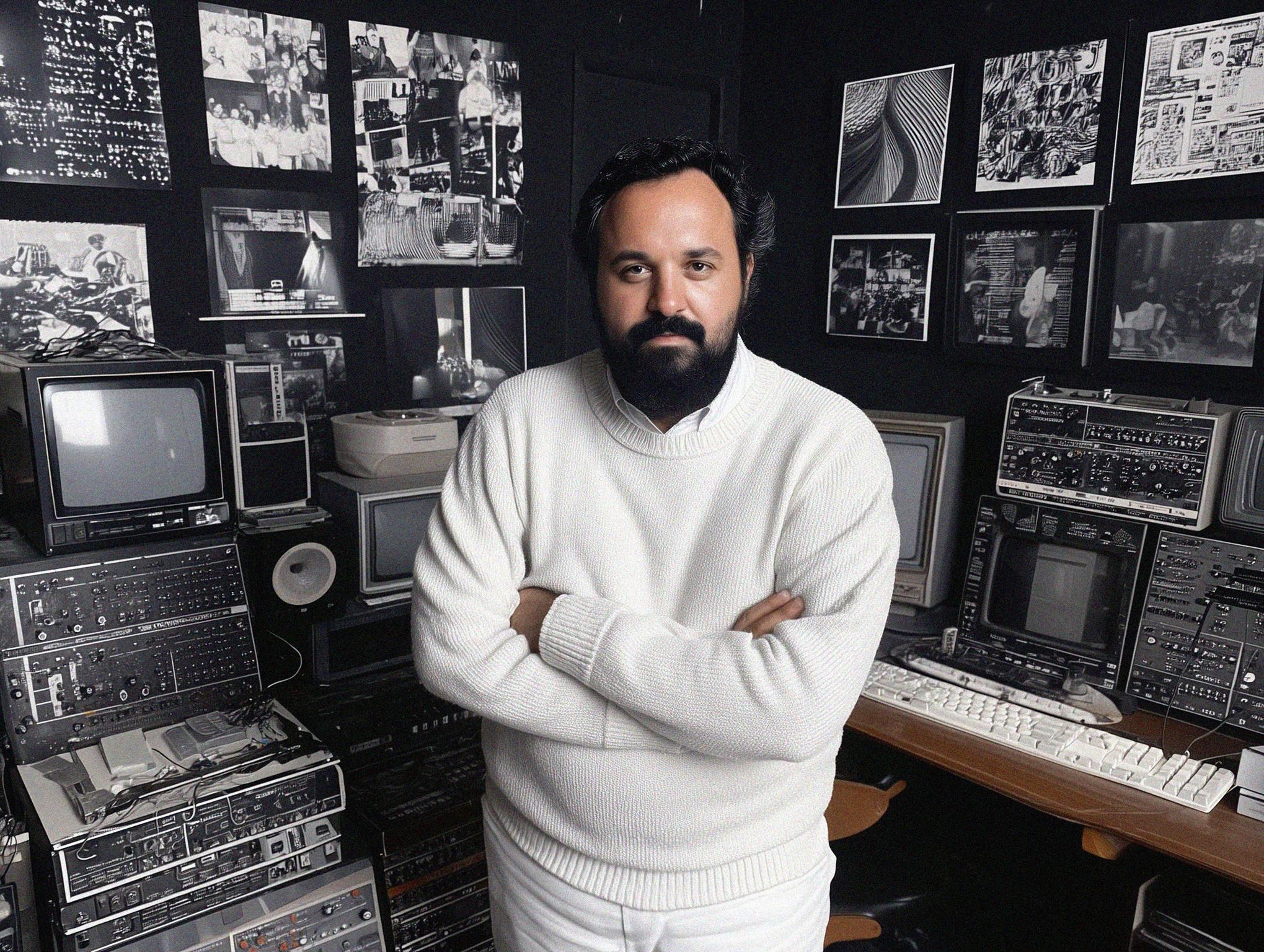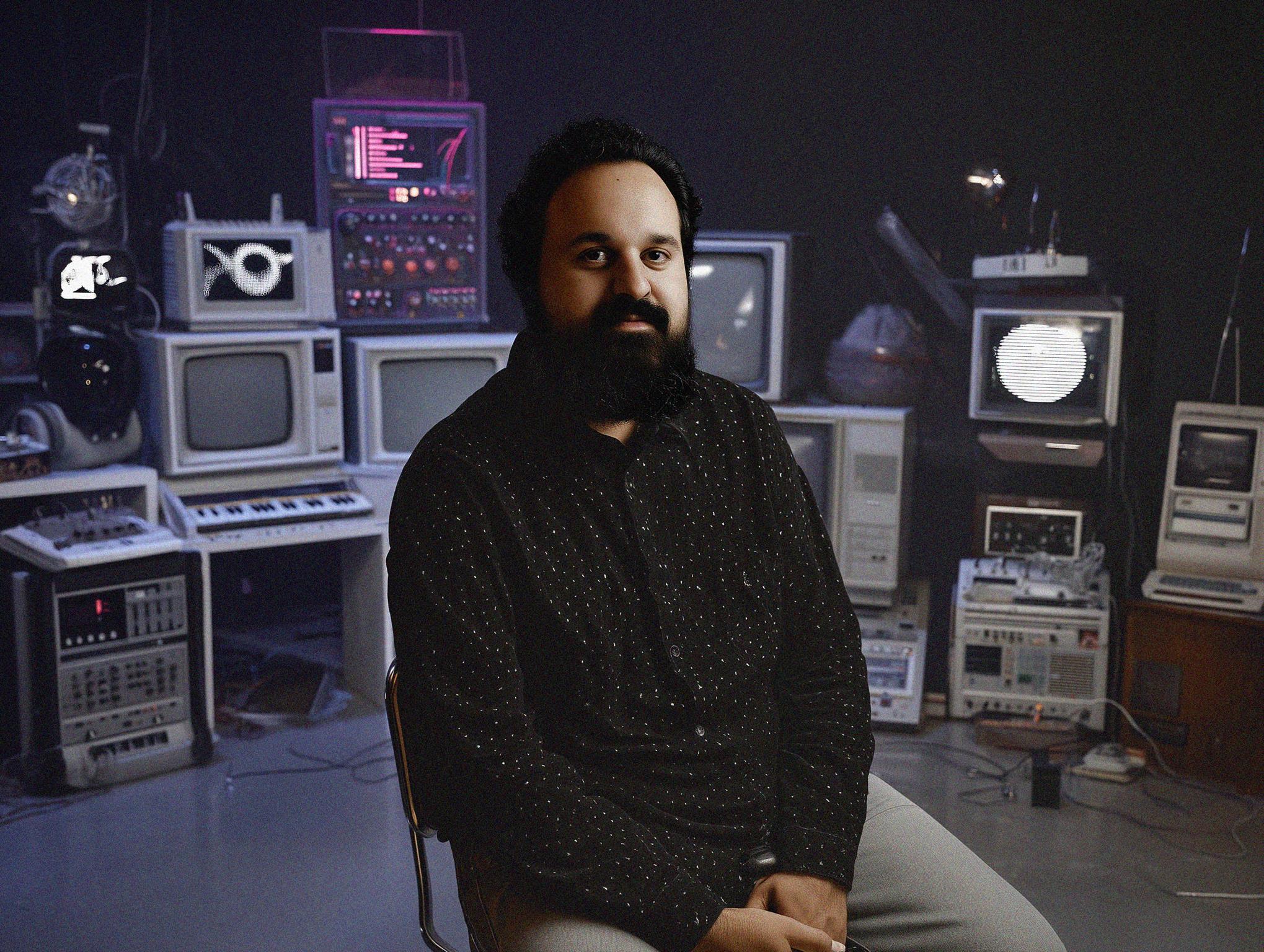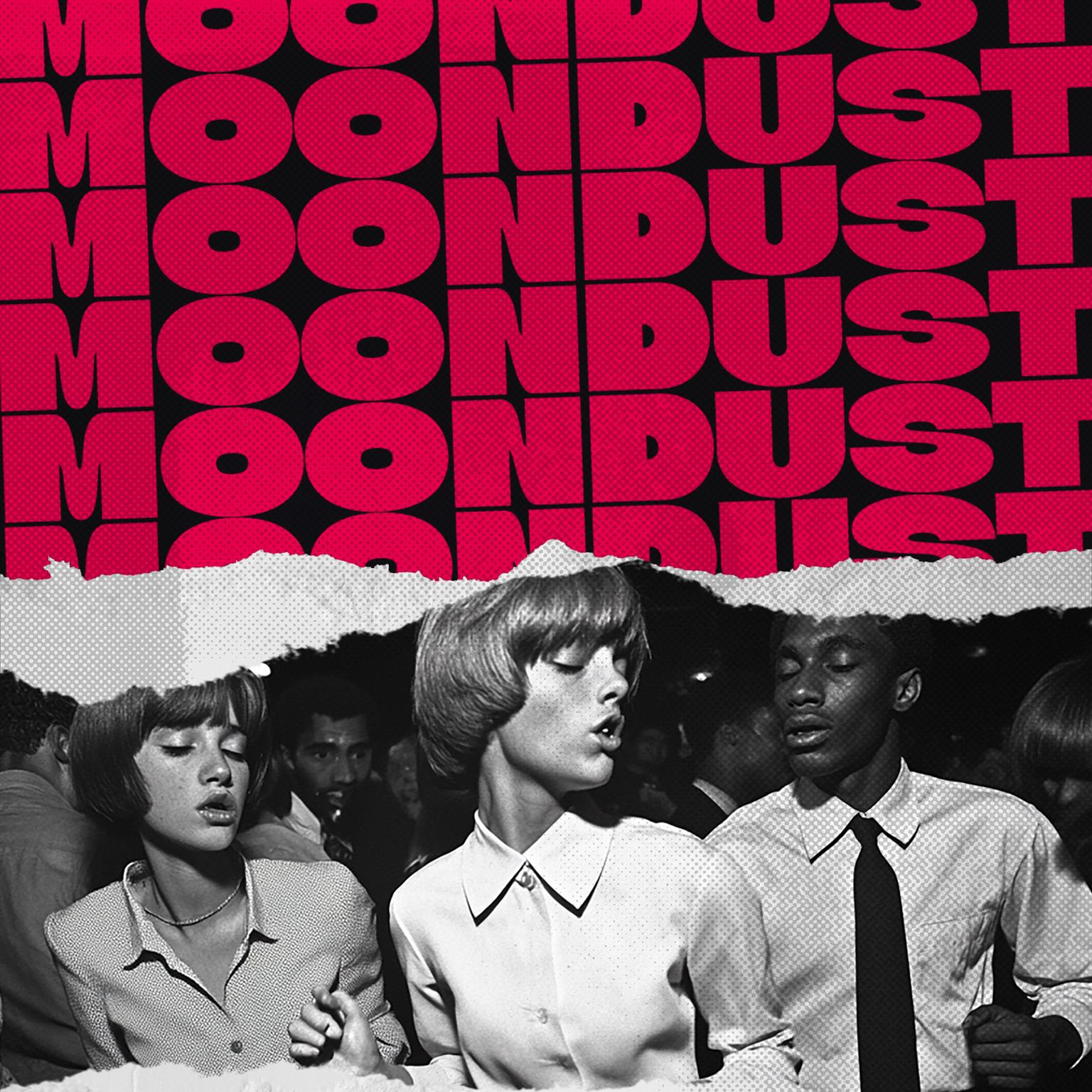
Combining tradition and technology, São Paulo-based producer and DJ Rev Denis has just released Moondust – Song Book, his first original album, entirely managed by artificial intelligence. Available on digital platforms, the project revives sounds from Jamaican music of the 1960s and 1970s—such as ska, rocksteady, reggae, calypso, and mento—in dialogue with little-known library music, a genre created for film and TV soundtracks. Featuring 14 tracks, the album pays tribute to forgotten composers and opens the way for new forms of music production, supported by REGGAEMATIC 3000, an AI developed by the artist himself in partnership with Carlos Aitken.
Moondust – Song Book is a bridge between vintage Jamaican music and little-known library music. What led you to combine these two distinct worlds in this project?
I’ve always been intrigued by musical styles that seem to belong to parallel worlds. I experimented with various combinations, but it was in this intersection of rocksteady and the aesthetics of library music that I found something truly unique. The process took shape organically until I realized there was a solid path. When the patterns began to repeat themselves consistently, I delved deeper and decided to turn the idea into an album.
Artificial intelligence played a central role in the creation of the album, including the use of its own model, the REGGAEMATIC 3000. What was it like emotionally for you to hand over part of the creative process to technology — and what surprised you most about this process?
It was more natural than it seems. I’ve been exploring and applying Generative AI for a long time, whether with images, text, or sound. I’m not a trained musician, but I’ve lived São Paulo nightlife intensely and listened to hours and hours of music throughout my life. This experience has given me the repertoire to translate sensations and atmospheres into parameters and prompts. What surprises me most to this day is listening to certain tracks and realizing how the machine captured nuances that would be difficult even for a human to explain.

When you revisit library music, you reclaim collective sonic memories that we often don’t even know where they come from. What is your personal relationship with this type of music? Do you have any memorable memories?
Many. Library music has this mysterious power of being in our heads before we even know the name of a track. It’s an art that blends the simple with the sophisticated, full of synesthetic layers. One of my favorite things is investigating these tracks, discovering who composed them, and the context in which they originated. My latest find was Billy Blanco’s LP “Paulistana,” which features the song “Amanhecendo.” I’ve listened to this song so many times I’ve lost count.
The album has an almost cinematic feel, as if it were the soundtrack to an imaginary film. Did you think of specific scenes or stories while producing it? What kind of imagery does Moondust – Song Book evoke for you?
Yes, from the beginning. I’ve always been into making mixtapes and sound collages, and this is reflected in the album’s structure, from the track order to the subtle effects. I like to think of sound as a wordless narrative. For me, the album presents a diffuse image, blending urban chaos, a certain everyday cynicism, and also the romanticism disguised as escapism of those who live the nightlife in big cities. It’s like a movie that was never filmed, but that you feel watching with your eyes closed.

The decision to also release the album on cassette is a highly symbolic one. What does this physical medium mean to you, and what kind of connection do you hope to create with collectors?
Back then, I started a label called Union Tapes that only released cassettes. I’ve always had a fondness for the format. I recorded and re-recorded many tapes as a teenager, and after the digitalization of media, returning to cassettes was almost a journey. Magnetic recording has soul, texture. It’s permissive, unlike vinyl, and has its own aesthetic. Sharing this material with those who are also fans of the format creates a very special kind of conversation.
Library music has often been overlooked, even though it’s essential for film and television soundtracks. In a way, do you feel this album is also a manifesto for valuing invisible creators?
Certainly. But it’s also a spark for us to discuss what it means to produce, in a different context, with other musicians and invisible voices—this time generated by the delusions of a machine—as well.

There’s a certain mysticism to the title Moondust—like moon dust. What does this name represent to you within the album’s concept?
The moon is a recurring theme in Jamaican classics, with songs like Symarip’s “Moonstomp” or Derrick Morgan’s “Moon Hop.” The dust evokes old radio, TV, and production company archives that stored soundtracks and incidental music. And there’s also the fact that the album was produced entirely during sleepless nights. It was hard to find a more representative title.
Blending past and future is never an easy task. What message do you hope listeners take away from the album—especially those unfamiliar with these musical genres?
Listen with curiosity and without haste. There’s a whole universe of melodies, references, and atmospheres hidden there, ready to be discovered. Sometimes the best story is the one told without words.

Follow Rev Denis on Instagram


